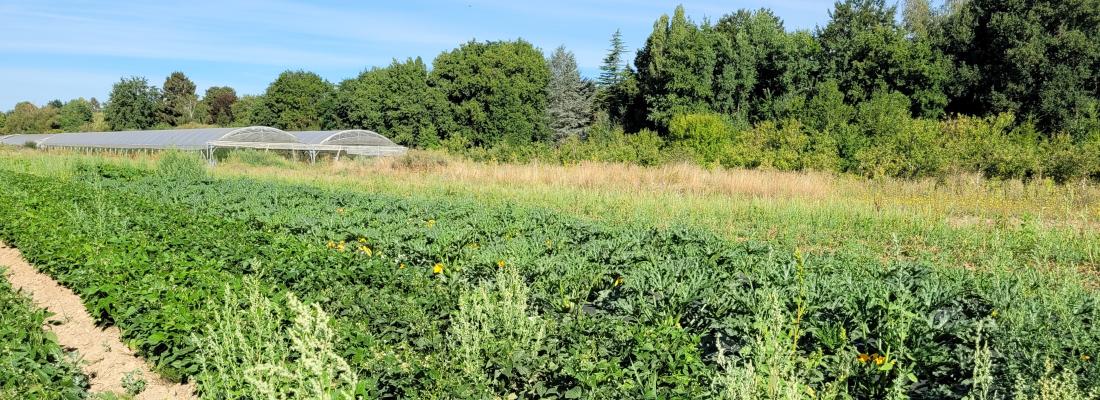Agroecology Reading time 3 min
Agroecology applied to crop protection: the zero-pesticide farming challenge
Published on 13 February 2023

Many researchers are interested in and have begun developing crop protection approaches that either partly or totally cut pesticide use under certain conditions. These approaches include agroecological crop protection (ACP), which relies on two of the basic principles of agroecology:
- making use of biodiversity and boosting soil health
- adopting preventive measures such as the use of disease-tolerant or disease-resistant varieties, suitable farming practices and a combination of agronomic solutions that have a partial effect, rather than curative measures such as using pesticides for crop pests.
The natural regulation of pests (insect pests, weeds, pathogenic fungi) is strongly linked to plant diversity, from the plot scale (association of varieties and species, crop rotations) to the landscape scale (hedges, crop mosaics), as has been shown by INRAE’s recent collective scientific expert report. Biodiversity and many ecosystem services (such as water regulation and carbon fixation) are also enhanced, while yields appear to be comparable to those obtained in conventional agriculture.
"Unlike pesticides, which are licensed and must be used against a specific type of pest, agroecological crop protection can be used on a territory or agrosystem scale, against all pests, by means of a virtuous circle of using biodiversity to boost agrosystem health", Jean-Philippe Deguine, agroecologist, CIRAD-Université de la Réunion
Territories and agrosystems also give rise to social interactions among farmers but also more widely with stakeholders both upstream and downstream. Advisors, training staff, scientists, citizens and decision-makers also contribute to designing innovative solutions. Numerous examples show cooperation between stakeholders in implementing these solutions. For the researchers who co-wrote the article, agroecological crop protection is capable of simultaneously:
- maintaining or improving agricultural yields, by reducing pest damage,
- ensuring healthy food,
- reducing the negative impacts of farming on the environment and on human health (zero pesticides),
- helping to make farms more economically viable.
The authors summarize the knowledge acquired and suggest ways of rolling out agroecological crop protection.
"The concept can be applied all over the world, provided local specificities are taken into account", says CIRAD agronomist Nadine Andrieu, Innovation joint research unit (CIRAD-INRAE-Institut Agro) one of the article's co-authors. "To this end, two-way knowledge sharing between scientists and farmers is vital, but substantial support from public policy will also be needed, to support the necessary technical and organizational changes."
Public policy must also allow for the time needed to implement ACP within farming systems, which calls for a transitional phase that can last several years, what with joint field diagnoses, participatory redesigns of cropping systems, farmer training and coordination of stakeholders. "We need to move away from the current short-term rationale and take the time to recreate biological equilibria within agro-ecosystems. The sooner we start, the sooner those new systems will be able to address the current issues facing farming", CIRAD agronomist Eric Scopel stresses.
This article, signed by 56 scientists, including more than 40 from French organizations, expresses the clear scientific consensus in France on agroecological crop protection, more broadly integrated into a global approach to health highlighting the connection between human, animal, plant and environmental health. It includes some 300 bibliographical references from every continent and opens up new prospects in terms of potential, and also new research operations.
REFErence
Jean-Philippe Deguine et al. 2023. Agroecological crop protection for sustainable agriculture. Advances in Agronomy
